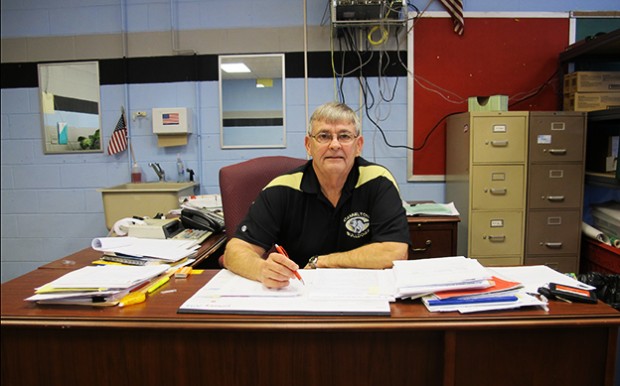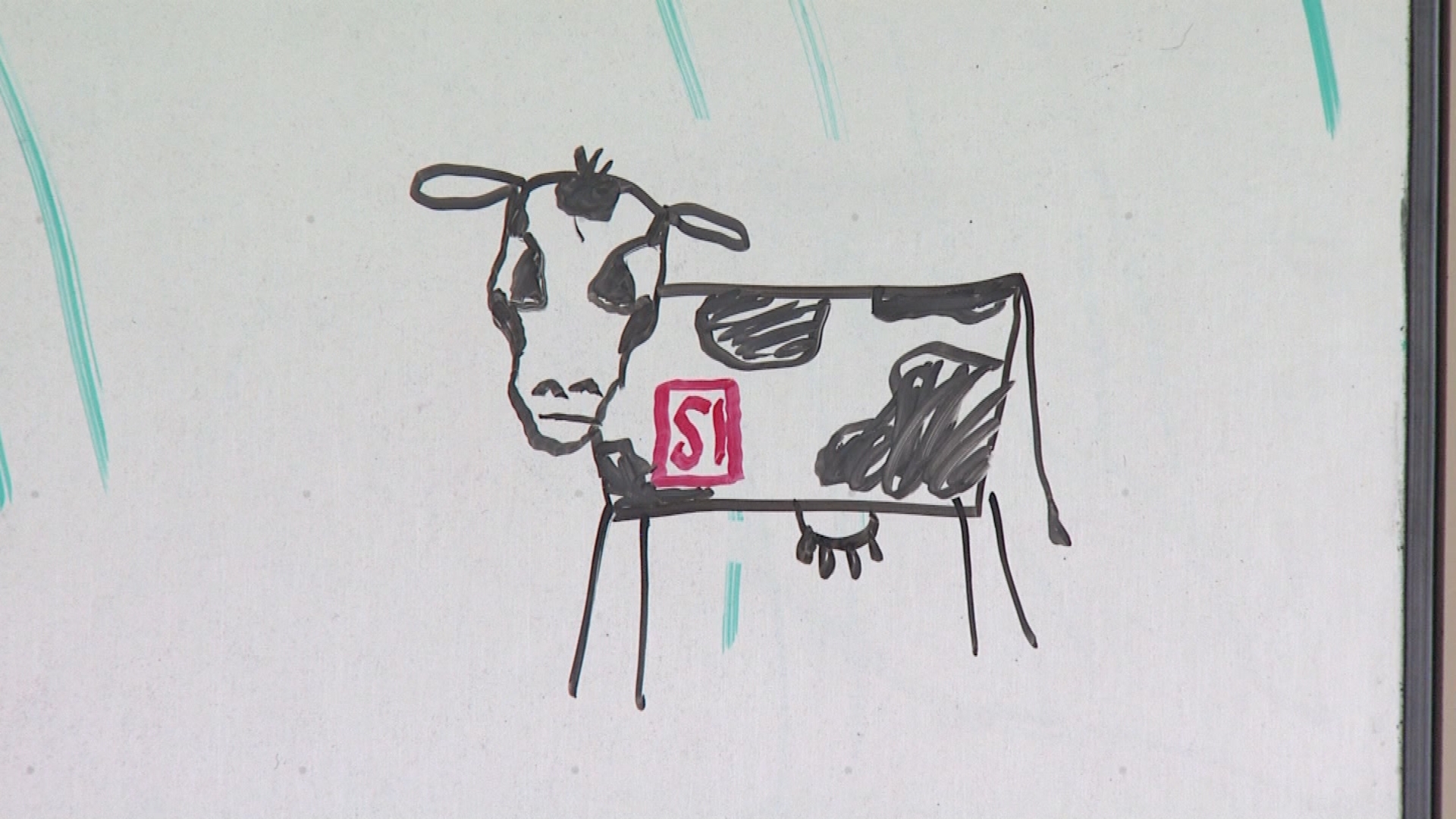Tiny, Troubled District Wonders How Indiana Would Replace Business Tax Dollars

Kyle Stokes / StateImpact Indiana
Cannelton City Schools was in 'complete disarray' when Al Sibbitt took over two years ago. The 72-year-old part-time superintendent has had to implement steep cuts to keep the district going, but revenues are still drying up.
At 72, Al Sibbitt doesn’t need to be working. But his part-time job still keeps him up nights.
“Where can I cut a few dollars here?” the Cannelton City Schools superintendent will ask himself when he can’t sleep. “Where can I save a few dollars there?”
When he took the job two years ago, Indiana’s smallest school district already had big financial problems. As if Cannelton’s declining enrollment weren’t problematic enough, the state’s Attorney General filed a lawsuit in 2012 against Sibbitt’s predecessor, who may have misspent more than $615,000 of the district’s money.
But on top of that, Cannelton has lost more than half of its local tax revenues to the state’s property tax caps. Proportionally speaking, only three Indiana districts have lost more to these constitutionally-enshrined limits on how much property owners pay to local governments.
“And now they’re talking about taking the machinery off the tax rolls,” Sibbitt says, referring to state lawmakers’ proposal to scale back Indiana’s business equipment tax. “Who’s going to make that up?”
- 'When You Can't Cut Anymore, I Don't Know What You Do'StateImpact Indiana‘s Kyle Stokes visits the state’s smallest school corporation in the state’s smallest incorporated town to find out how the property tax caps have impacted the schools.Download
Relatively speaking, Cannelton schools wouldn’t lose much if the equipment tax — known formally as the “business personal property tax” — went away entirely, but Sibbitt’s district can ill-afford another hit of a few-thousand dollars to its budget.

Kyle Stokes / StateImpact Indiana
Workers at the largest business within Cannelton's city limits, the Can Clay Corporation, construct piping. In the background stands the city's most iconic building — a former cotton mill that now serves as a low-income apartment building.
Plans currently moving through the General Assembly would not completely eliminate the tax. Some proponents of the tax cut in Indiana’s business community — who feel the tax discourages business investments in the state — have said state lawmakers should simply raise other taxes to make up for the hit to local revenues.
“The reality is you can’t just get rid of this tax right away, by any means,” says Bill Waltz of the Indiana Chamber of Commerce. “You’re not going to do it quickly, you’re not going to do it easily. And it’s going to involve revenue replacement… We would like to work with local governments because we think there are some revenue sources available currently and ones that could be made available.”
Gov. Mike Pence has also advocated for finding a way to cut the equipment tax without placing “undue burden” on local governments and schools.
But with about one month remaining in the General Assembly’s session, it remains unclear how lawmakers will reconcile differing plans to scale back the tax. When statehouse reporters pressed the governor last week, Pence didn’t offer details of how revenue from the tax would be replaced, citing ongoing negotiations.
Network Indiana has more on the ongoing legislative debate, which involves plans in the state’s House and Senate:The House‘s bill would allow local governments to exempt new business property from the tax without eliminating the tax entirely. The bill that passed the Senate would end the tax only for businesses with less than $25,000 worth of equipment, which supporters say is about 70 percent of the state‘s businesses. The Senate bill would also reduce the corporate income tax rate from 6.5 percent to 4.9 percent over the next five years.
Between the two, [Indiana Fiscal Policy Institute President John Ketzenberger] likes the Senate’s approach more.
“It would have less of an effect on local government revenue, which the Senate believes could be made up by other means, mostly by growth in the economy,” he says.
Neither bill goes as far as Gov. Pence would like. He has spoken at length about the need to end the tax because Illinois and Ohio don’t have one, and Michigan is phasing it out. Pence says he worries about losing businesses to those states.
But in Cannelton, with the district unable to collect half of its property tax revenues because of the caps, Sibbitt is already planning more cost-cutting measures just to keep the pre-K, elementary and high school open. He says he’ll instead have to pay the district’s utility bills with state dollars that normally go toward paying teacher salaries.

Kyle Stokes / StateImpact Indiana
Students at Cannelton Junior-Senior High School pass between classes. The corporation's enrollment — of around 250 — is one of the state's smallest.
Cannelton’s teachers already agreed to a 5 percent pay cut. Sibbitt says he’ll try to convince them to scale back their insurance benefits as well.
“I think they’re willing to make sacrifices, but you can only make so many. You get to the point where you’ve cut everything. Now I can’t cut any more staff,” he says.
Cannelton’s situation is extreme, but the relative magnitude of the district’s financial pain would be familiar to residents of the Muncie or Franklin Township school districts — both of which have threatened to cut bus services because of severe losses to the property tax caps.
But the reason Sibbitt worries the district might have to close its doors in the near future is not property tax revenues, but declining enrollment. The district has downsized from 294 students in 2008-09 to around 250 students currently.
Though Sibbitt says the district has managed to attract students from nearby Tell City, he says the district cannot remain open if the current trend holds for more than a few years.
“I can’t guarantee in five years, there’s going to be a school corporation here,” Sibbitt says. “If [enrollment] keeps going down, it doesn’t matter who the superintendent is.”
Podcast: Play in new window | Download
